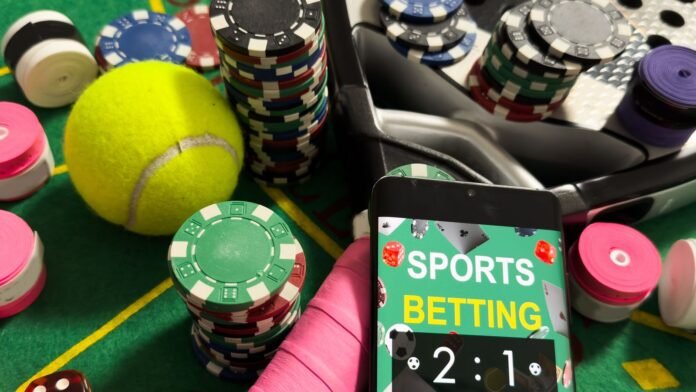The chancellor has declined to rule out raising taxes on gambling after a thinktank said the move could raise £3.2bn for the public coffers and cover the cost of lifting 500,000 children out of poverty.
According to the Institute for Public Policy Research (IPPR), hiking taxes on online casinos and slot machines could raise enough revenue to fund scrapping the two-child benefit cap, with the organisation arguing that there is “no other measure which provides comparable headline child poverty reduction per pound spent”.
The proposals have been backed by former prime minister Gordon Brown, but the Betting and Gaming Council says they are “economically reckless” and could drive punters towards the black market.
The chancellor has not ruled out taking forward the proposals, telling broadcasters that a review into gambling taxes is under way, and policies will be set out at the budget in the autumn.
Money blog: Interest rate cut to lowest level in more than two years
The IPPR says in its report that the chancellor should consider increasing taxes on online casinos from 21% to 50% and raising those on slots and gaming machines from 20% to 50%, as well as raising general betting duty on non-racing bets from 15% to 25% which it said would bring other sports in line with the rates paid by horse racing.
These measures could bring in £3.2bn for the Treasury, which would cover the cost of lifting the two-child benefit cap.
The cap was introduced by the Conservative government in April 2017, and it restricts universal credit and child tax credits to the first two children in a family, where the third or subsequent children are born after this date.
According to the thinktank’s analysis of data from the Department for Work and Pensions, 115,000 families are affected, with an average financial impact of £60 per week.
Overall, the policy is keeping over 450,000 in poverty currently, which is set to rise to 550,000 by the end of the decade, it adds.
The IPPR says raising these taxes is unlikely to reduce overall revenue for the Exchequer because firms are likely to “seek to protect their bottom lines by worsening odds”, which means a “strong possibility of higher government revenue” than their forecasts expect.
‘An investment in our children’s future’
Henry Parkes, principal economist and head of quantitative research at IPPR, said in a statement: “The gambling industry is highly profitable, yet is exempt from paying VAT and often pays no corporation tax, with many online firms based offshore. It is also inescapable that gambling causes serious harm, especially in its most high-stakes forms.
“Set against a context of stark and rising levels of child poverty, it only feels fair to ask this industry to contribute a little more.”
Progressive campaign group 38 Degrees has started a petition calling on the government to implement the proposals, and former prime minister Gordon Brown said in a statement: “Gambling will not build a brighter future for our children. But taxing it properly might just get them properly nourished. Decent clothes. A warm bed. And the full stomachs that let them fill their brains in school.
“Taxing the betting industry to support our children won’t be a gamble. It will be an investment in their future. One where everyone wins.”
Proposals ‘would do more harm than good’
The government has long been facing calls from its own backbenches to scrap the two-child benefit cap, and has not ruled it out doing so as part of a broader package of measures to tackle child poverty, due to be published in the autumn.
Speaking to broadcasters this afternoon, Chancellor Rachel Reeves said she speaks to the former premier “regularly”, and, like him, is “deeply concerned around the levels of child poverty in Britain”.
She continued: “We’re a Labour government. Of course we care about child poverty. That’s why one of the first things we did as a government was to set up a child poverty taskforce that will be reporting in the autumn and respond to it then.
“And on gambling taxes, we’ve already launched a review into gambling taxes. We’re taking evidence on that at the moment and, again, we’ll set out our policies in the normal way, in our budget later this year.”
But the Betting and Gaming Council says raising taxes on its members is not a sound way of funding measures to reduce poverty, with a spokesperson saying the proposals are “economically reckless, factually misleading, and risk driving huge numbers to the growing, unsafe, unregulated gambling black market, which doesn’t protect consumers and contributes zero tax”.
They added: “Further tax rises, fresh off the back of government reforms which cost the sector over a billion in lost revenue, would do more harm than good – for punters, jobs, growth and public finances.”







